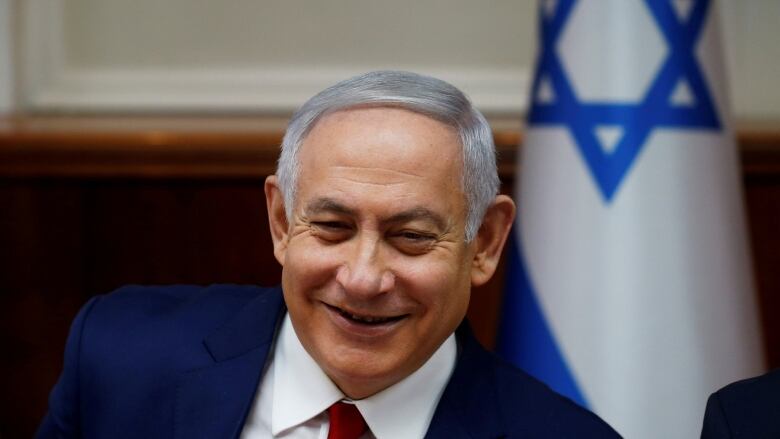Israel to hold early election in April
Parliament dissolved amid dispute over extending draft to ultra-Orthodox men

Israel will hold an earlygeneral election in April, a spokesperson for Prime MinisterBenjamin Netanyahu said on Monday, after members of hisgoverning coalition met to discuss differences over legislation.
"The leaders of the coalition decided unanimously todissolve parliament and go to a new election in early April," the spokesperson wrote on Twitter, quoting from a statement issuedby Netanyahu's political partners.
Anew law extending the military draft to ultra-Orthodox menappears to have triggered the government's downfall.
Netanyahu'sultra-Orthodox partners are demanding the legislation be weakened, and his razor-thin parliamentary majority seems to make such acompromise impossible.
Ultra-Orthodox parties consider conscription a taboo, fearingthat military service will lead to immersion in secularism. Butyears of exemptions have generated widespread resentment among therest of Jewish Israelis. Earlier Wednesday, Yair Lapid of thecentristYesh Atidopposition party announced he was rescinding his supportfor the bill, calling the coalition's hoped-for compromise a payoffto draft dodgers.
As a result, Netanyahu convened his fellow coalition faction leaders and the decision was made to dissolve parliament and go toelections.
No clear challenger
Netanyahu, now in his fourth term as prime minister, hasbeen governing with a slim majority of 61 seats in the 120-member parliament. He heads the right-wing Likud party.
Under Israeli law, a national election had to be held byNovember 2019. Netanyahu's government would remain in place until a new one is sworn in, after the April poll.
A series of corruption probes against Netanyahu and pendingdecisions by Israel's attorney general on whether to follow police recommendations to indict him had raised speculation hewould opt to seek a public show of confidence at the ballot box.
Netanyahu has denied any wrongdoing in the cases and hasgiven no indication he will step down if charged.
The 69-year-old Israeli leader made no immediate commentafter his meeting with the coalition leaders. Recent opinion polls have shown his popularity remains strong among Israelis.
The likelihood of an early election increased in Novemberafter Netanyahu's defence minister, Avigdor Lieberman, quit the government, leaving the ruling coalition with its one-seatmajority.
No one in Netanyahu's Likud has made a public challengeagainst him, and the party is expected to close ranks around himin the coming election.
Outside Likud, Lapid is seen as the strongest candidate to succeed Netanyahu in any upset. Lapid's party is second to Likud inopinion polls.
Israel's former army chief, Benny Gantz, is seen as a dovishpotential candidate who could tip the balance in favour of a centre-left bloc, but has not yet thrown his hat in the ring.
On the right, Lieberman and Naftali Bennett, head of theJewish Home party, could both seek to lead a right-wing bloc if Likud emerges in a weaker position in an election.
Netanyahu first led Israel from 1996 to 1999, and returnedin 2009. His current government has been in power since May2015.
With files from The Associated Press












_(720p).jpg)


 OFFICIAL HD MUSIC VIDEO.jpg)
.jpg)



























































































